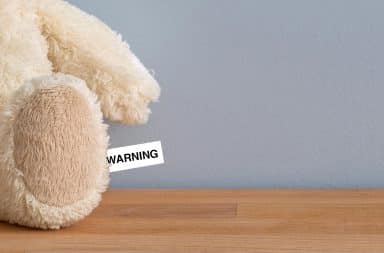Making a newspaper comic is pain. It is the very definition of pain. As I’m sure you are all well aware, I, Scott Adams, have been making Dilberts for decades now. And I have become very good at making Dilbert, for he is my lifeblood and I am his unforgiving creator.
But how do I do it? How do I, Scott Adams, make a new Dilbert every day without letting my work STAGNATE and PUTREFY like a bloated corpse in medical book that children dare not to peruse?
The answer is deliciously simple.
Before my pen even outlines his dirty, filthy Dilbert clothing, I draw the Dilbert naked first. To preserve his essence. To preserve his purity.
The Dilbert must first be allowed to experience a life free from tarnish: naked and unmarred and free. That is what makes his fall from glory all the more comical.
Yes. You heard me correctly. The whole Dilbert (and not merely a representative subsection) is delivered into this world as garmentless and as blameless as a newborn babe: his square chest. His cylinder head. His legs (oh, his chaste legs). When I begin every strip, they are singularly as unblemished and as pure as the fallen snow. You see, it is only after I have “birthed” (so to speak) a fresh and unsullied Dilbert, that I may decorate his newspaper prison with cubicles and colors and colleagues.
And clothes.
Oh, his godforsaken clothes.
How it pains me to daily draw pants and a shirt and a DAMNED red-and-black curved tie over Dilbert’s guiltless, undefiled skin. But, of course, he must wear clothing, is that not right? The burden of clothing has always been man’s mark of Cain–it symbolizes our loss of innocence in a world of impurity. For Dilbert to function at all, he must wear clothing to show that he has been SYMBOLICALLY TARNISHED.
But, equally importantly, he must first be allowed to experience a life free from tarnish: naked and unmarred and free. That is what makes his fall from glory all the more comical.
Do I draw the other Dilbert characters naked? No. For they are impure and they do not deserve the gift of immaculateness. Truly, it is no mere coincidence that Dilbert’s reviled “Pointy-Haired Boss” has two tufts of hair that subtly allude to the scarlet horns of the Great Deceiver. The foes of the Dilbert may have the external appearance of “colleagues,” but they are tempters. They are TORMENTORS. They are stark allegories of an evil that has been etched into the very caverns of time itself.
Indeed, when I daily ink the garments of Wally or Alice or Asok or any of Dilbert’s other inferior, fully-clothed antagonists, I am delightfully reminded of a particularly enticing quotation from Marlowe’s Doctor Faustus:
“Hell hath no limits, nor is circumscribed
In one self place, but where we are is hell,
And where hell is, there must we ever be.” (2.1.118-120)
Where we are is hell; and I cannot draw the other characters naked, for hell must envelope the Dilbert at every turn.
The perceptive reader may have noted that Dilbert’s dog, Dogbert, is also naked (as is the custom of so many pets). But this does not mean that Dogbert is as innocent as the Dilbert. No. Far from it. Dogbert is also an allegorical tormentor of the Dilbert, so I must first draw him with clothing, and then draw his naked form over the clothes to preserve his corruption.
This process takes hours.
And finally, only after I have layered clothing and characters and DECEIT onto the comic, thereby ushering Dilbert out of Eden and into Gomorrah, do I allow myself to add words to the page. My iconic punchlines like “it saves me a lot of money” or “we’re paying them too much” or “and I need it done by next Tuesday” speak to the human condition (and are titillating in their own right). But they only truly function by reflecting a world that has witnessed unbridled purity, only to see that purity become suppressed and contained.
And the only way to achieve this effect is to grant a character blissful nakedness. Then take it away.
In this sense, the tale of Dilbert is not unique. Rather, it is as old as mankind; and it is why my work has successfully spanned the decades and why it will one day bury me: we are all born naked and we all will die in clothing.
We are all Dilbert.


